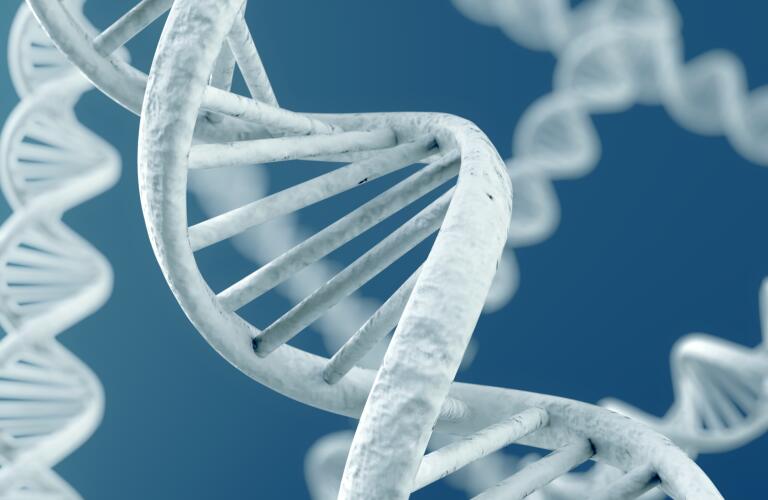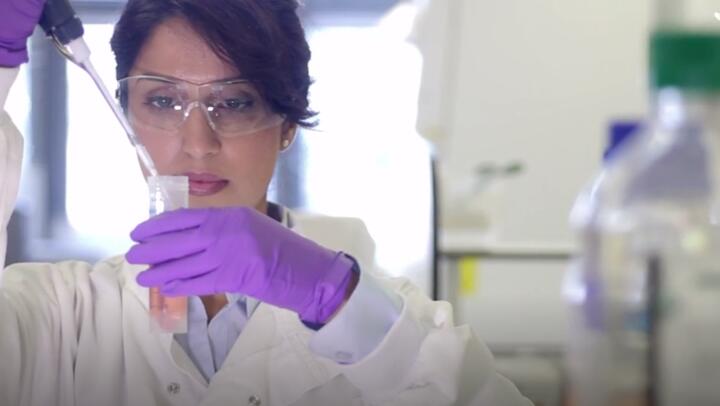
Precision medicine is still a relatively new term to many people. This innovative approach to medicine tailors a patient’s treatment plan according to their unique characteristics, including genes, lifestyle, and environment. In the world of cancer care, this is important since we’ve seen how cancer can be very different from person to person, and some exciting progress has already been made.
A newer form of cancer treatment, known as targeted therapy, is often considered the foundation of precision medicine. Researchers have found that changes within the genes of cancer cells are what allow them to grow and divide uncontrollably. Just like the name implies, targeted therapies were developed to “target” those genetic changes and stop the cancer from progressing. Targeted therapies specifically attack the cancer cells while leaving healthy cells unharmed, as opposed to other treatments like chemotherapy which can damage healthy cells.
Some patients may now have genetic screenings performed on their cancer. If a genetic change is found that has a targeted therapy available, this may be added to their treatment plan. There are targeted therapies available for several types of cancer, including:
Leukemia: Gleevac (imatinib) was the first FDA-approved targeted therapy for chronic myelogenous leukemia in the 1990s.
Breast cancer: Herceptin (traztuzumab) is used for HER2-receptor positive breast cancer.
Colorectal cancer: Drugs that block epidermal growth factor receptor (EGFR) protein may help slow the growth of colorectal cancer.
Lung cancer: Like colorectal cancer, blocking the EGFR receptor can help treat lung cancer.
Melanoma: Almost 50% of melanomas have a genetic mutation in the BRAF gene. Those that do can benefit form a BRAF-inhibitor drugs.
There are not currently targeted therapies for all types of cancer, and not all patients are eligible based on their cancer’s genetic makeup. However, as precision medicine continues to advance, researchers continue to seach for new genetic changes and develop targeted treatments.
For many years, cancer treatment regimens were largely based on where the cancer originated in the body and how far the disease had progressed. So, for example, two people with Stage IV lung cancer would often receive the same course of treatment. Yet, just recently, the FDA approved Keytruda (pembrolizumab) as the first cancer treatment to be used based on the cancer’s genetic makeup, regardless of where in the body it first occurred. Only those patients whose tumors have specific gene mutations, confirmed through medical testing, are eligible candidates for Keytruda.
This is just the start. There are currently many other clinical trials, called basket studies, underway to look at how cancer treatments work against different types of cancer that share the same genetic mutations. Researchers remain hopeful that just like Keytruda, this shift will provide countless patients with access to more effective cancer therapies.
Another area of precision medicine, called pharmacogenomics, looks at how genetics affect the way our bodies respond to medication. When dealing with strong cancer medications, like chemotherapy, it’s critically important to ensure the drugs are being used safely and effectively. Rather than making desions based solely on weight or body surface area, pharmacogenetics can provide dosing recommendations. Some examples include:
Patients with colon cancer may receive a genetic test before being given a type of chemotherapy, Camptosar (ireotecan). If they are found to have a certain genetic mutation, they may not be able to eliminate the drug properly and would require a lower dose.
Children with acute lymphoblastic leukemia may be tested for a genetic variation that would affect their ability to metabolize chemotherapy safely.
Finding new ways to treat cancer is great, but preventing it from occurring in the first place is even better. Testing for the presence of the BRCA1 or BRCA2 mutation is probably the most well-known method of using precision medicine in this way. Patients that test positive for the mutation can be counselled on what can be done to lower their risk of developing breast or ovarian cancer, from receiving more frequent cancer screenings to having preventative surgery to remove the breasts or ovaries.
Researchers continue to collect genetic data from large numbers of people with the eventual goal of being able to pinpoint certain variations that lead to the development of cancer. Many researchers believe this data is crucial to the future of cancer prevention, resulting in the identification high-risk populations, the development of anti-cancer vaccines, and beyond.
The goal of precision medicine for cancer is clear—provide each patient with the most effective treatment while reducing the risk of harm. While many advances have already been made, it is still a growing area of medicine. If you’d like to learn more, talk to your doctor. He or she can help you determine if you are a good candidate.



















